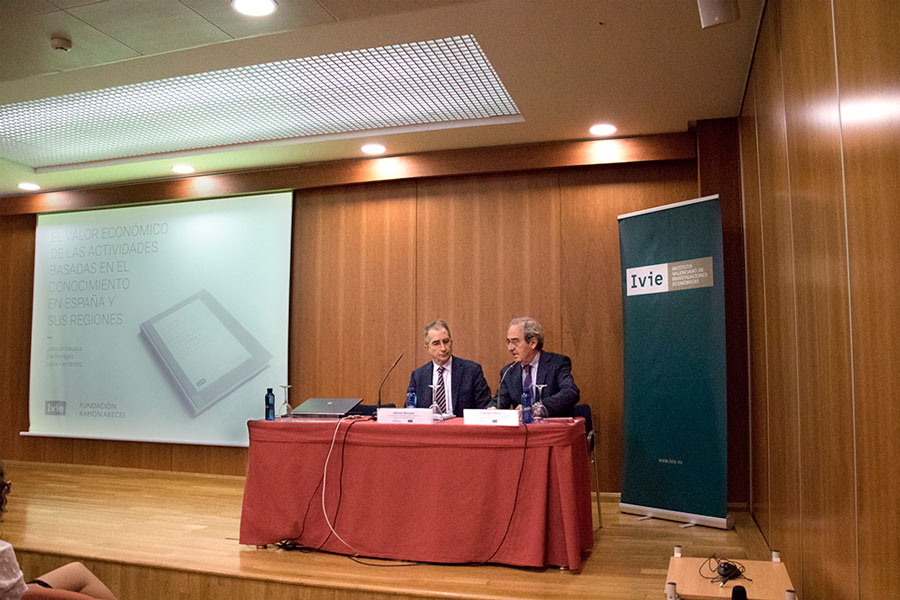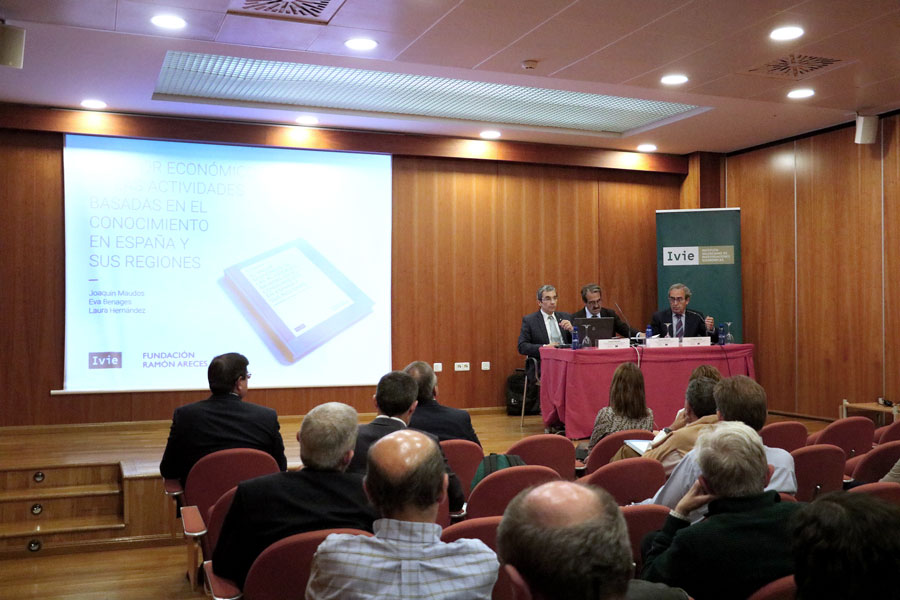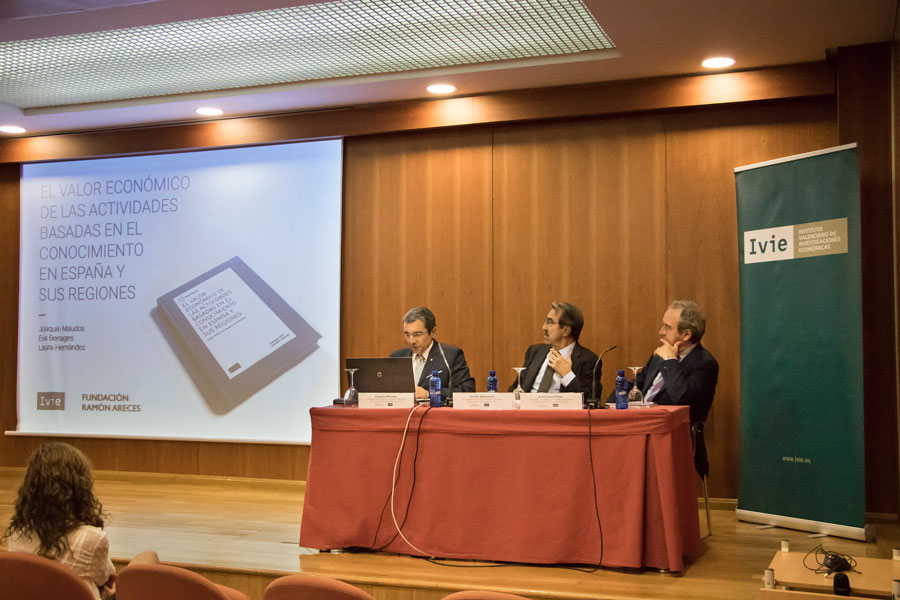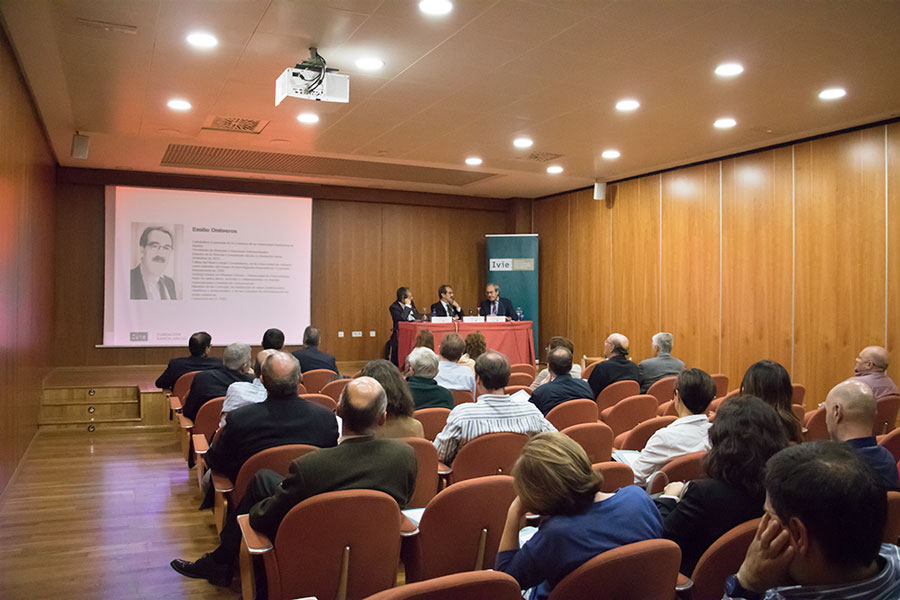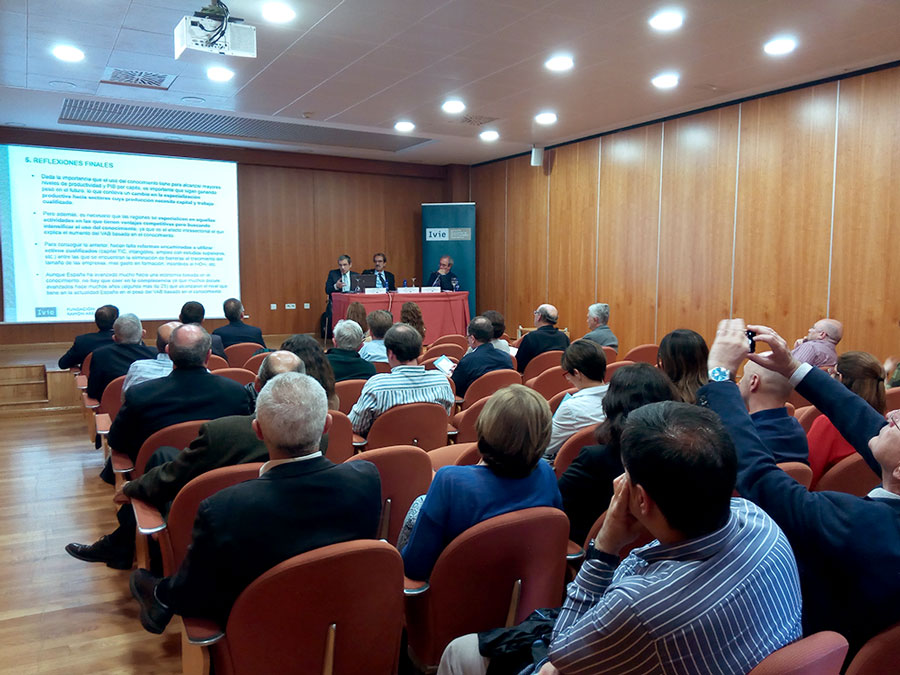Knowledge-based activities represent 60% of the value added of the Spanish economy
Highly qualified employment is the factor that most contributes to GVA and to the improvement of productivity
Knowledge-based activities, which are those that require the use of more qualified productive resources (i.e. human capital, ICT assets, machinery and equipment), have become more important in the Spanish economy during this century. Specifically, between 2000 and 2014, these activities represented 60% of the gross value added (GVA) of the economy compared to 54% at the beginning of the century.
In the boom years, knowledge-based activities grew at an average annual rate of 2.3%, nearly twice than the rest of activities, which increased 1.2%. Even during the crisis, the value of these activities which focus on the use of more qualified production factors has continued increasing (0.2%), in contrast with the 1% annual drop registered by activities that are not based on knowledge. Therefore, knowledge-based activities have been the main drivers of growth in recent years and their advancing development explains Spain’s economic recovery from the recession.
These are some of the conclusions found in the publication El valor económico de las actividades basadas en el conocimiento en España y sus regiones, developed by the Ivie for Ramón Areces Foundation. The study, directed by the Professor of the University of Valencia and Ivie Research Deputy Director, Joaquín Maudos, in collaboration with Ivie Researchers Eva Benages and Laura Hernández, includes a database with information at regional level that allows measuring knowledge-based GVA for Spain’s 17 autonomous communities. The database also offers a broad sectoral breakdown of 27 sectors at national level and 21 at regional level.
The analysis is based on the breakdown of income (GVA) that remunerates factors of production (capital and labour) into two parts: factors that are knowledge based and factors with low knowledge content. Thus, the share of income that remunerates knowledge-based factors is quantified. In the case of capital, the distinction between knowledge and non- knowledge based factors is determined by asset type, while for labour, the level of studies, as well as the jobs carried out, are considered.
Main conclusions of the study
- Highly qualified employment is the most important driver of economic growth, since 45% of GVA is intended to its remuneration, 14 percentage points more than in the year 2000
- The weight of employment with basic studies or unskilled employment has fallen 15 points in this century
- Both in the boom years as well as during the crisis, the more qualified production factors have had better results, making up for the drop in factors that are not based on knowledge
- There are important sectoral differences in the use of more qualified productive factors, ranging from the highest level in the ICT sector, where knowledge-based activities represent 95.4% of the total, to the lowest, 5.6%, in the case of real estate activities
- Regarding data at regional level, differences reaching 20 percentage points are registered. For example, Madrid takes the lead, with 68.9% of GVA focused in knowledge-based activities, while Extremadura (50.6%) is located at the tail end of the knowledge economy
More information:
National press release | Comunidad Valenciana press release | Databases | Report | Programme







